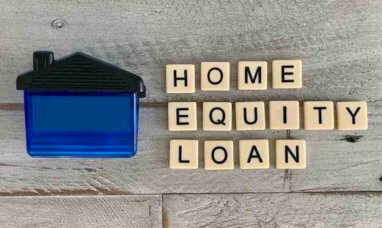Buying a house can be an intimidating process starting out, especially when you have to consider how much house you can afford. There are some specific guidelines you can follow and factors to consider that will help you navigate this process and remain within your budget.
Home Affordability Calculator
How much house can I afford with 76k? How much house can I afford making $63,000 a year? No matter what numbers you are working with, you can estimate how much house you can afford by looking at the following aspects of your finances.
Revenue Streams
The first place to start is to calculate your revenue streams. That is, how much income you are bringing in each month. You can start with your primary salary, but you are also going to include all of your monthly income in this calculation. This includes part-time earnings, investment earnings, social security payments, or any other regular income stream.
If you are buying with a partner, include their monthly income as well. For this exercise, you will be using your gross monthly income. This is income that has been earned before accounting for any taxes.
Financial Obligations and Debt
While your income will be an important factor in determining how much house you can afford, lenders will look at your income relative to the amount of debt you maintain. Debt refers to regular payments that you have to make towards a loan, such as car payments, student loans, or other types of loans. Having debt is not a bad thing — in fact, in many scenarios, it has a positive impact on your credit score — it is simply a component of your finances that lenders will consider when going through the mortgage approval process.
Generally speaking, banks and lenders will take into account financial obligations that you will have for at least the next ten months.
Debt-to-Income Ratio
The debt-to-income (DTI) ratio shows how much of your monthly income goes toward paying off debts. It’s a calculation used by lenders to determine how much of your monthly income is already committed to existing (or even upcoming) financial obligations. When you go through the mortgage application process, lenders look for a low DTI. This tells them that you have enough money to make your payments on time each month.
The equation for calculating the debt-to-income ratio is:
DTI = Monthly Debts / Gross Monthly Income
Some of the debts that may be considered in the calculation are:
-
-
-
- Credit card payments
- Student loans
- Personal loans
- Car loans
- Other mortgages
- Child support or alimony payments
-
-
As you can see, the considerations for debt calculation when it comes to finding your DTI involve recurring payments, mostly towards lines of credit or loans. Generally speaking, you won’t have to include monthly bills for utilities, food, and other regular living expenses.
Calculating DTI
Once you have found your monthly income and your monthly debt, you can plug those numbers in the DTI formula to find your DTI. When you divide your monthly debt by your monthly gross income, you’ll get a decimal number. Multiply that number by 100 to receive the percentage that is your DTI
How Much Mortgage Can I Afford?
Banks and lenders will use the calculation of your DTI as a basis for approving you for a mortgage and determining how much that mortgage is. Ultimately, an applicant’s DTI, credit score, credit report, down payment, and loan amount will affect approval for a mortgage. In addition, the location that you are applying for a loan in can affect the standards for the mortgage.
If you are applying for a conventional loan, there are some guidelines you can follow. Conventional loans are typically made by private mortgage providers such as banks and credit unions. These loans are typically secured for mortgages on residential properties.
Home loans considered conventional mortgages generally abide by the following guidelines.
-
-
- Minimum credit score: 640 (this can vary depending on other factors)
- DTI: 43-percent or less
- No prior bankruptcies or foreclosures
- Down payment: 3-percent to 20-percent
-
All of these considerations go into a lender deciding how big of a mortgage you can afford.
How to Determine How Much House You Can Afford
Ultimately, you will need to work with a lender to figure out exactly how much house you can afford, given your current financial situation. That being said, you can do some preliminary calculations to get a better sense of your budget. Create a mortgage affordability template using these categories to crunch the numbers on what you can afford.
Down Payment
How much money do you have for a down payment? You should know how much liquid cash you have to put towards your down payment. You may need to pay as much as 20-percent of the home price as a down payment. In fact, putting down 20-percent can save you money as you won’t be obligated to pay mortgage insurance premiums.
Home Price
Once you know how much you can or are willing to commit to a down payment, you can figure out the price range of the home you are looking for.
For instance, if you have $60,000 towards a down payment, you know that you can look at homes that are $300,000 ($60,000 is a 20-percent down payment on a $300,000 home). This is a conservative estimate given that it assumes putting down a 20-percent down payment, which you may not have to do. However, if you end up putting down a lower percentage for a down payment, that will only increase your spending power when it comes to the price of a home.
Interest Rate
The interest rate is a percentage on your mortgage for the cost of borrowing the principal amount of the loan (e.g., $300,000). Most mortgage loan interest rates are fixed, meaning that the percentage will remain the same over the life of the loan unless you refinance. Look up current mortgage rates to estimate what your interest rate may be. Better credit scores will get lower interest rates. If you have already been quoted an interest rate from a bank, use that in your calculations.
Loan Term
Lastly, in order to calculate how much house you can afford, you will need to consider the loan term of your mortgage. Most mortgages are paid off over a 10, 15, 20, or 30 year period. When you pay over 30 years, your monthly payments will be lower than if you pay off your mortgage over 10 years. However, you will end up paying more interest over longer loan terms.
Other Loan Types
There are other loan types that you may be utilizing to finance the purchase of a property. This includes government-backed loans like FHA loans and VA loans.
How Much House Can I Afford With a VA Loan?
If you have a military connection or have served in the military, you may be eligible for a VA loan that is backed by the Department of Veterans Affairs. Usually, these types of loans don’t require a down payment. VA loans are available to qualified US veterans and active-duty military. Some surviving spouses are also eligible for this loan type.
To calculate how much house you can afford with a VA loan, you will want to make sure you are eligible. Then, find out what the current loan limit is for VA loans in your area. You will need to purchase a house within that limit in order to not have to pay a down payment on a home.
How Much House Can I Afford With an FHA Loan?
An FHA loan is insured by the Federal Housing Authority. It’s a great mortgage for first-time homebuyers as it requires a lower down payment compared to conventional loans. Because the loan is backed by the federal government, lenders will approve borrowers with lower credit scores. Additionally, these loan types have more flexibility when it comes to putting down a down payment, where you can put down as low as 3.5-percent. Generally, an FHA debt to income ratio of 55-percent and lower is required.
Featured Image: Megapixl








